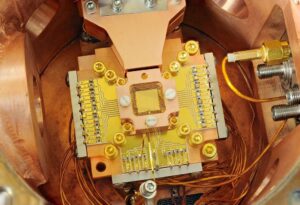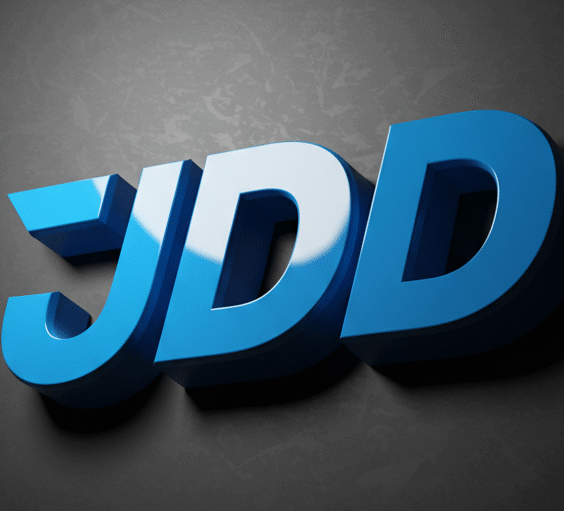Quantum Computer Companies' Platform Summary
As quantum computers become increasingly realistic, several global companies are competitively developing quantum computing platforms.
In this article, we summarize the representative quantum computer platforms and their features. Since they are accessible through the cloud,
Regular researchers and developers also have the opportunity to easily experiment and learn.
🔹 IBM Quantum Platform
characteristic: IBM offers a cloud-based quantum computing platform that allows anyone to design and run quantum circuits through a web browser.
It also supports an open-source quantum software development kit called Qiskit, which allows researchers and developers to experiment with various quantum algorithms.

🔹 Google Quantum AI
characteristic: Google has developed a state-of-the-art quantum chip called Willow that applies quantum error correction technology,
We are conducting research for commercialization of quantum computing. We are also evaluating performance through benchmark calculations such as quantum circuit sampling.
🔹 Microsoft Azure Quantum
characteristic: Microsoft offers a variety of quantum hardware and software tools through its Azure cloud platform.
You can develop and run quantum programs using the Q# language and QDK.
*Microsoft quantum computer Go see
🔹 Amazon Braket
characteristic: AWS provides access to a variety of quantum computers and circuit simulators.
Supports development and testing of hybrid quantum-classical algorithms.
*Amazon Quantum Computer Go see
🔹Honeywell Quantum Solutions (Quantinuum)
characteristic: Honeywell merged with Cambridge Quantum to form Quantinuum, which is developing a trapped ion-based quantum computer.
We are developing applications in a variety of fields, including finance, precision medicine, and genetics.
🔹 Rigetti Computing
characteristic: It provides Novera, a 9-qubit quantum processor, and supports the development and execution of quantum algorithms on a cloud basis.
🔹 D-Wave Quantum
characteristic: We provide a computer that solves optimization problems using quantum annealing technology. It is used to solve real-world problems such as supply chain management and resource allocation.
Easily accessible via the cloud.

Who uses this platform and how?
- user: Quantum physicists, computer scientists, master's and doctoral researchers, quantum solution company developers, etc.
- Main uses: Quantum circuit design, quantum algorithm testing, quantum machine learning, chemical simulation, error correction research, etc.
- Development Tools: Qiskit (IBM), Q# (Microsoft), Braket SDK (Amazon), Cirq (Google)
- Prerequisites: Programming skills and knowledge of quantum computing theory are essential.
Can ordinary people use it?
Most current quantum computing platforms are focused on experts and researchers, but simple experiences are available to the general public as well:
- IBM Quantum: Provides a GUI that allows you to assemble quantum circuits like blocks in a web browser. (Available after signing up for membership) -Example: Like building a house with Lego blocks. Go to the website and drag and drop blocks called 'quantum circuits' like Lego blocks to build them up. Experiment with them by 'connecting this and that' with your mouse without any complicated code. Anyone can experience it by simply signing up as a member.
- Microsoft Learn: Q# Basic Tutorial Provided. You can learn the principles without direct coding. - Example: Cooking Class Video Lecture
There are online lectures that teach you the quantum computer-specific language called Q#, and they explain the principles and concepts of 'why this is important' in an easy-to-understand way without having to code yourself. It's like a 'beginner's cooking class'! - Amazon Braket: Simulator-based experience available. Simple execution is possible with just an AWS account. -
Example: Computer game trial version
If you have an AWS account, you can play the 'quantum computer game'. It's not a full quantum computer, but a simulator (simulated experience), so it feels like you're indirectly experiencing how a real quantum computer works.Of course, advanced features require programming and quantum knowledge, but for now, Tutorial-focused, experiential contentIt is also being provided in many ways. In the future, it will develop into an era where anyone can easily utilize it!

finish
Quantum computers are now increasingly being used in real-world industries and science, going beyond mere research.
Currently, most of the access is indirectly through cloud platforms, but in the future, quantum computer technology, like artificial intelligence, will also be available. It is likely to become an everyday tool.
In particular, global companies such as IBM, Google, Microsoft, and Amazon are providing quantum computing services in their cloud environments. Now that it is open to the general public, it is time for not only professional researchers but also general developers and students to practice real quantum algorithms.
Because quantum computers work in a completely different way than classical computers, it is important to learn the basic concepts and tools now. You can adapt to future technological changes faster than anyone else.
There are many unfamiliar concepts such as quantum gates, qubits, entanglement states, and measurements, but if you practice step by step and gain experience, you will naturally understand them before you know it.
This moment is similar to the 'early internet era' of quantum computing.
Just as when the Internet first came out, those who prepared in advance became the protagonists of the digital world,
Understanding and experience with quantum computers will be a critical asset that will shape the next decade.
Now is the best time to take your first steps into the future technology of quantum computing.
Don't be afraid, let's learn one by one. The future belongs to those who are prepared!
